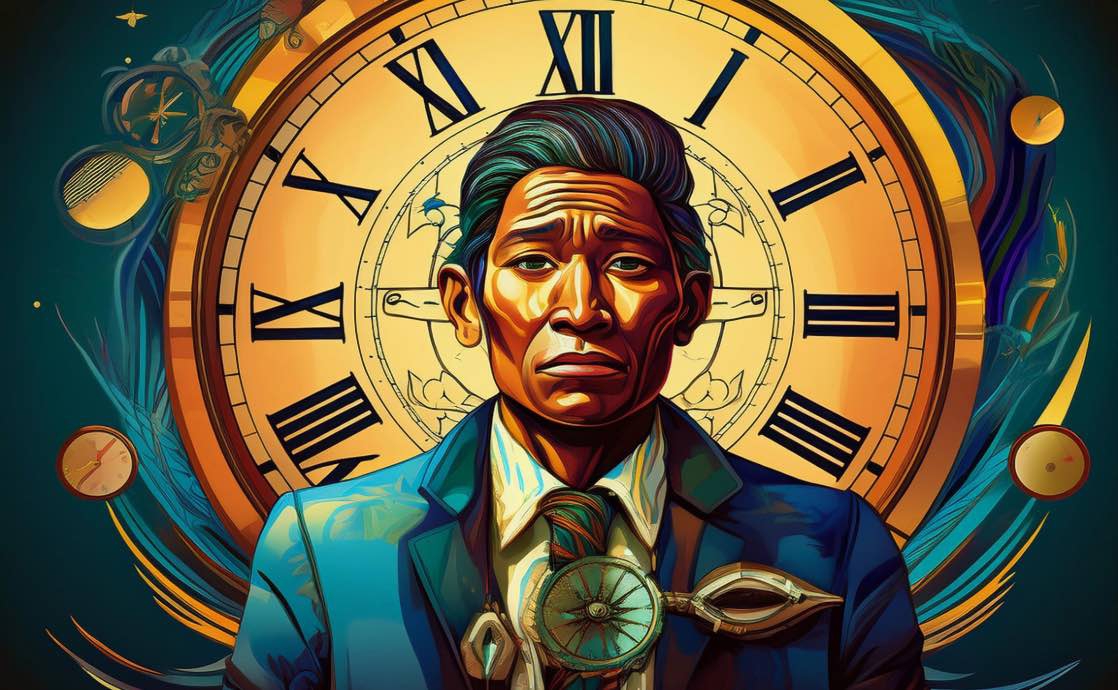The views expressed in our content reflect individual perspectives and do not represent the authoritative views of the Baha'i Faith.
Most of us have heard the expression that “time heals all wounds,” but is that true?
Does the mere passage of time dull the severity of pain and resolve the problems that created it? Or is it more about how we utilize time — the constructive actions that we take — that actually facilitate healing?
That’s what I’m pondering after reading “Time Does Not Heal All Wounds: Quality of Life and Psychological Distress of People Who Survived the Holocaust as Children 55 Years Later,” published in the Journal of Traumatic Stress. The study assessed the psychological distress, quality of life, and posttraumatic stress disorder (PTSD) symptoms of 43 child Holocaust survivors and a community sample of 44 people who did not experience the Holocaust.
Results showed that the child survivors had “higher PTSD symptom scores, higher depression, anxiety, somatization, and anger–hostility scores; and lower physical, psychological, and social QoL [quality of life] than did the comparison group,” suggesting that the psychological consequences of such horrific trauma can be long-lasting.
That’s why I’ve written articles about how we can deal with disappointment, emotionally purge, and create a new future for ourselves so these wounds don’t fester and grow.
RELATED: How to Apologize: The 6 Steps of a Great Apology
Yet, people often internalize and repeat fallacious sayings like:
- “Give it time, and it will sort itself out.”
- “The tide will turn.”
- “Time heals all wounds.”
- “Let sleeping dogs lie.”
- “Wait until it blows over.”
Now, sleeping on a matter can help calm emotions and bring clarity when making a decision. But true healing requires deliberate action — whether it’s making amends, resolving a problem, or choosing to let go.
We can neither wait nor expect an issue to “blow over” without effort, especially with longstanding injustices like religious, gender, economic, and racial oppression. In 1938, Shoghi Effendi, the Guardian of the Baha’i Faith, was adamant about this. He wrote:
Casting away once and for all the fallacious doctrine of racial superiority, with all its attendant evils, confusion, and miseries, and welcoming and encouraging the intermixture of races, and tearing down the barriers that now divide them, they should each endeavor, day and night, to fulfill their particular responsibilities in the common task which so urgently faces them.
Let them, while each is attempting to contribute its share to the solution of this perplexing problem, call to mind the warnings of ‘Abdu’l‑Bahá, and visualize, while there is yet time, the dire consequences that must follow if this challenging and unhappy situation that faces the entire American nation is not definitely remedied.
Not only did Shoghi Effendi identify working for racial unity as an urgent task that we should strive “day and night” to achieve, but he also advised us to visualize the “dire consequences” that will follow if we don’t remedy this situation. Dr. Martin Luther King Jr. appeared to have felt the same way as Shoghi Effendi.
He reiterated that point 30 years later in his book “Where Do We Go From Here: Chaos or Community?” and discussed the challenge we face to “unite around powerful action programs to eradicate the last vestiges of racial injustice.”
“We will be greatly misled if we feel that the problem will work itself out,” wrote Dr. King. “Structures of evil do not crumble by passive waiting. If history teaches anything, it is that evil is recalcitrant and determined, and never voluntarily relinquishes its hold short of an almost fanatical resistance. Evil must be attacked by a counteracting persistence, by the day-to-day assault of the battering rams of justice.”
Shoghi Effendi stressed the importance of resisting these structures of evil. He wrote:
The ceaseless exertions which this issue of paramount importance calls for, the sacrifices it must impose, the care and vigilance it demands, the moral courage and fortitude it requires, the tact and sympathy it necessitates, invest this problem, which the American believers are still far from having satisfactorily resolved, with an urgency and importance that cannot be overestimated.
Likewise, Dr. King wrote:
We must get rid of the false notion that there is some miraculous quality in the flow of time that inevitably heals all evils. There is only one thing certain about time, and that is that it waits for no one. If it is not used constructively, it passes you by. In this generation the children of darkness are still shrewder than the children of light. They are always zealous and conscientious in using time for their evil purposes.
If they want to preserve segregation and tyranny, they do not wait on time; they make time their fellow conspirator. If they want to defeat a fair housing bill, they don’t say to the public, ‘Be patient, wait on time, and our cause will win.’ Rather, they use time to spend big money, to disseminate half-truths, to confuse the popular mind. But the forces of light cautiously wait, patiently pray and timidly act. So we end up with a double destruction: the destructive violence of the bad people and the destructive silence of the good people.
Certainly, silence often signifies compliance with wrongdoers and a hopeless defeat with the situation at large. The Greek physician Hippocrates once said, “Healing is a matter of time, but it is sometimes also a matter of opportunity.”
What will you all do with this opportunity, this gift of time while you have it, to heal not just yourselves but also the world?
















Comments
Sign in or create an account
Continue with Googleor